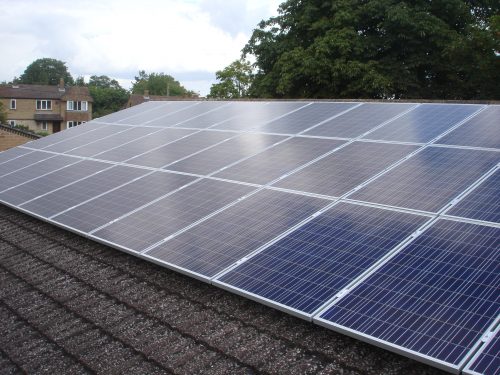Upcoming webinars on the future of energy
Join us to discuss the future of energy, in our series of webinars
The world may be focused on the immediate threat of coronavirus, but we feel strongly that it’s as important as ever for us to continue with our work to tackle the climate crisis and create a zero carbon energy system that’s good for people and for the planet.
We’re launching a series of webinars so you can stay up-to-date with our work and with the latest developments in the transition to a renewable energy future.
Below you’ll find the details for our upcoming webinars, as well as how you can catch up with webinars which have already taken place. Please note: we are taking a break in August 2020 so there will not be any webinars listed for this time.
To keep updated with any future webinars we add to this series, please sign up to our Low Carbon Hub mailing list.
Upcoming Low Carbon Hub webinars
We are taking a break from webinars for August 2020.
Catch up with previous webinars
Investing in the Low Carbon Hub – your questions answered with Saskya Huggins and Barbara Hammond
The Low Carbon Hub’s Barbara Hammond (CEO) and Saskya Huggins (Social Impact Director) discussed why investing in community energy is a powerful action to take against the climate crisis, and our latest investment opportunity within the Community Energy Fund.
Energy System Transition: A better local solution with Professor Malcolm McCulloch
Professor Malcolm McCulloch (University of Oxford, Department of Engineering Science) spoke about the transition to an energy system centred around renewable energy generation, and particularly on the role of local energy within this system.
A Network for Net Zero – the first year of Project LEO (Local Energy Oxfordshire) with Mel Bryce
For our third webinar, Melanie Bryce gave an overview of the first year of Project Local Energy Oxfordshire (LEO) – one of the most ambitious, wide-ranging, innovative, and holistic smart grid trials ever conducted in the UK, which the Low Carbon Hub is also a partner on. Zoe Toone, Marketing Coordinator at the Low Carbon Hub, introduced the webinar and took questions throughout.
The Low Carbon Hub’s Community Coffee Morning – Community Energy Fortnight with Cathy Ryan
We held a nationwide Community Coffee Morning as part of Community Energy Fortnight 2020, inviting low carbon community groups from across the country to join us to share ideas on how to keep the momentum going on climate change during coronavirus.
Project LEO’s smart-grid trials in Oxfordshire (so far) with Dr Scot Wheeler
Dr Scot Wheeler of Oxford University gave an overview of the smart-grid trials which have already taken place in Oxfordshire as part of Project LEO, what has been learnt from them, and what further trials will be taking place.
People in smart local energy systems – some thoughts from Project LEO and beyond with Sarah Darby
Dr Sarah Darby of Oxford University discussed the role of people and communities within smart local energy systems, especially within Project LEO which aims to create a fair and equitable model for the energy system of the future.
The Role of Electric Vehicles in Project LEO and the energy system of the future with Paige Mullen of Nuvve
Project LEO (Local Energy Oxfordshire) is developing and testing new energy services and business models from a range of flexible assets, such as electric vehicles, in order to operate a smart, flexible energy system for a net-zero future. Paige discusses how electric vehicles (EVs) will be leveraged in LEO to provide local flexibility.
The role of flexibility in Project LEO and a net zero energy system with Graham Oakes
Graham Oakes explored the role of flexibility and demand management in the energy system of the future, what Project LEO is doing to develop this, and what it means for the people using that energy system.
Read next…
 News story
News storyRecord-breaking solar generation in the UK – and at the Low Carbon Hub!
On Tuesday 28 April 2020 the UK’s electricity grid hit a new record for the longest coal-free period since pre-industrial times (previously been held at 18 days), with coal power plants offline from midnight on Friday 10 April. This coal-free period has been due to maximised levels of solar energy generation, due to high levels…
